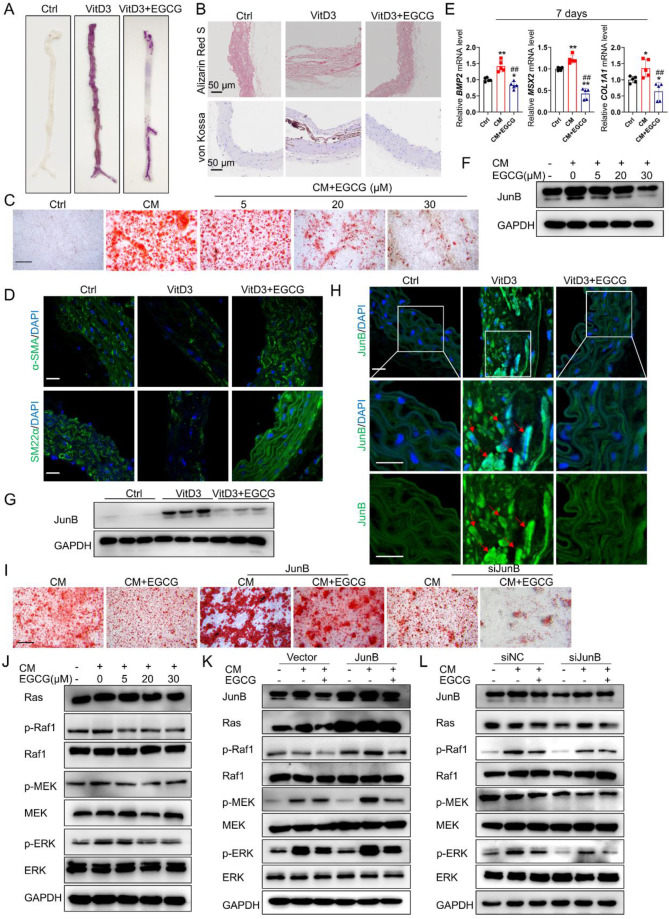
EGCG alleviates vascular calcification via the MAPK/JunB signaling pathway


Vascular calcification is a pathophysiological change characterized by abnormal deposition of hydroxyapatite crystals in the vascular walls, contributing to increased morbidity and mortality from cardiovascular diseases.1 Currently, there are no effective therapeutic strategies to prevent or impede the progression of vascular calcification. Recent studies have elucidated that inhibiting the phenotypic transition of vascular smooth muscle cells (VSMCs) from contractile to osteo/chondrogenic phenotype represents a pivotal strategy for restraining vascular calcification.2 Diet and lifestyle are strongly linked to arterial calcification.3 Green tea is the second most popular beverage globally besides water. Studies have substantiated the favorable impact of tea beverages on cardiovascular ailments.4 However, the potential of green tea in the investigation of treating and preventing vascular calcification has not been fully explored yet. In this study, we have discovered that (-)-epigallocatechin gallate (EGCG), a prominent catechin present in green tea, exhibits the potential to mitigate vascular calcification both in vivo and in vitro. Mechanistically, EGCG effectively mitigates vascular calcification by inhibiting mineral deposition and osteogenic differentiation of VSMCs through the MAPK-JunB signaling axis.
